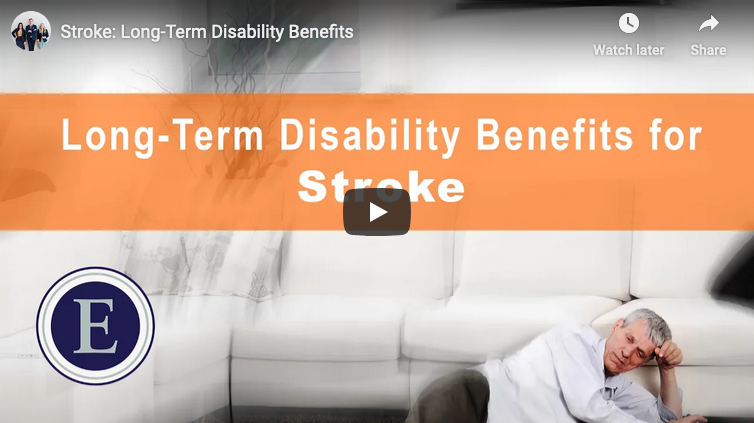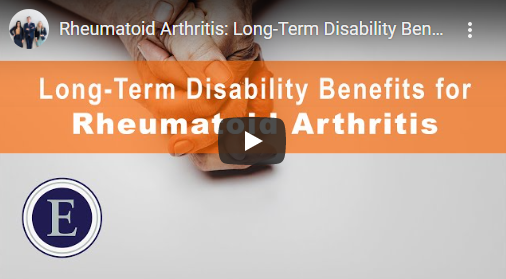Do I Qualify for Long-Term Disability Benefits if I Have Parkinson’s Disease?
Can I Get Long-Term Disability Benefits for Parkinson’s Disease?
One of the most common questions we get is “Do I qualify for long-term disability benefits if I have Parkinson’s disease?”
Parkinson’s disease (PD) is a progressive disease of the nervous system that affects movement. Tremors, stiffness and cognitive impairment are common symptoms of PD and can have a significant impact on a person’s employment and daily life.
Therefore, Parkinson’s disease can qualify for long-term disability benefits – provided it is not excluded by your insurance policy wording.
LTD Denied? Which Category Do You Fit In?
Category 1: The insurance company denied your initial claim for disability benefits for Parkinson’s Disease.
Category 2: The insurance company denied your appeal.
Category 3: The insurance company discontinued or terminated your benefits.
What Can We Do For You?
We’ll work with you and your physician to help challenge the insurance company’s denial or discontinuance of your long-term disability benefits.
Where necessary, we will engage other trusted professionals to support your case including specialists, functional capacity evaluators, and vocational evaluators to help credibly explain why your disability symptoms are preventing you from doing your “own occupation” or “any occupation”.
Our Help Can Make All The Difference. How?
- Over 25 years’ combined experience getting our clients the benefits they deserve.
- Expertise in both disability and employment law (your employment status is directly linked with your disability)
- We offer a free case assessment
- We offer flexible rates, including contingency fees (i.e., only pay if you win)
- Service across all of Ontario


Parkinson’s Disease: Overview
Parkinson’s Disease is a neurodegenerative chronic health condition that targets dopamine-producing neurons in the substantia nigra, a region of the brain that controls movement, cognitive function, and emotional responses.
When the neurons die, the dopamine levels in the brain decrease, causing impaired movement and other symptoms.
Parkinson’s cause is unknown, but is believed to be a combination of environmental and genetic factors. Therefore, each person’s experience with PD is different.
Progression of the condition and a person’s bio-mechanical make up can also affect the intensity of symptoms.
Some risk factors include:
- Age
- Sex (more common in men)
- Genes
- Exposure to herbicides/pesticides
Though there is no cure, medications can reduce symptoms in some patients.
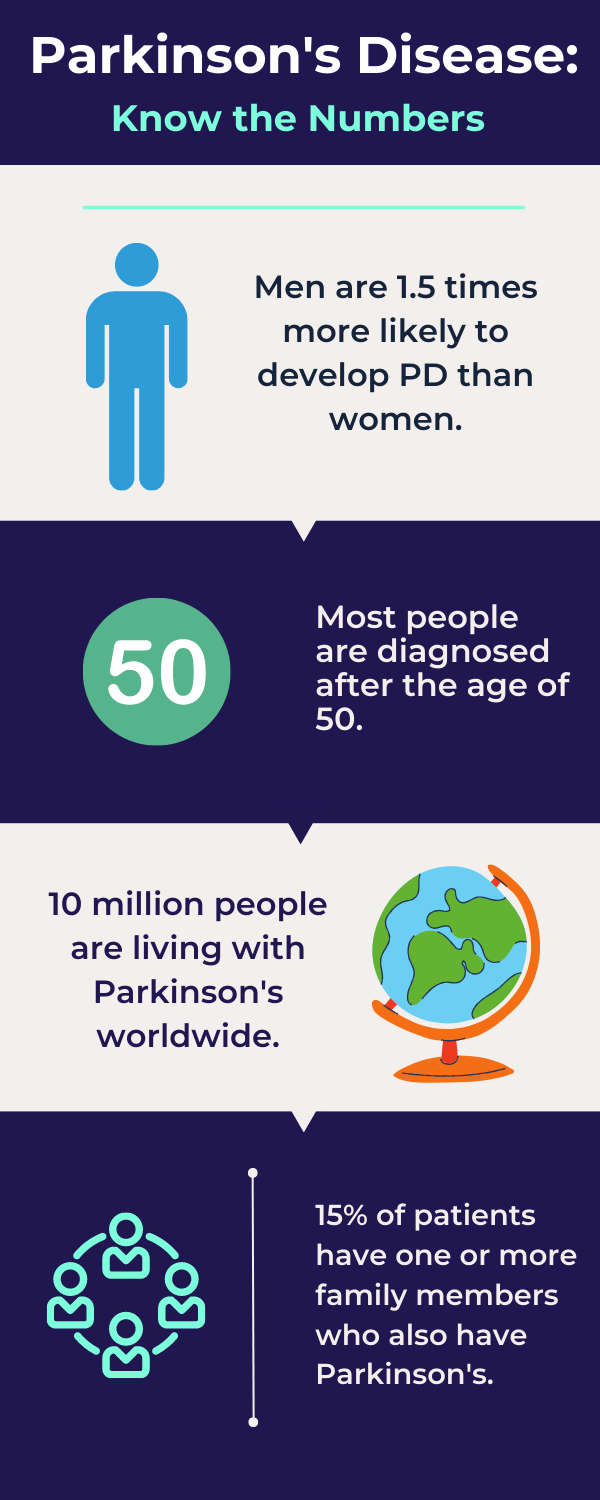
Most Common Symptoms of Parkinson’s Disease
Parkinson’s disease is mainly associated with:
Tremor: the shaking of a limb or hand is common in patients. It may also tremble in a resting position.
Impaired movement: simple movements become time-consuming and difficult. Balance and reflexes also deteriorate.
Cognitive difficulties: Memory, concentration, and speech abilities progressively worsen. Dementia can develop after a period of time.
Other symptoms can include:
- Rigidity
- Dizziness
- Drooling
- Reduced facial expression
- Muscle cramps
- Muscle twisting
- Fatigue
- Loss of taste or smell
- Pain
- Constipation
Important: The dopamine drop can make many people with Parkinson’s disease feel depressed of anxious.
Criteria for a Diagnosis of Parkinson’s Disease
There is no single test to confirm if you have Parkinson’s disease. Doctors have to rule out other conditions to make a diagnosis and will likely diagnose your disease based on medical history, symptoms, and examinations. They might also suggest a dopamine transporter scan, that will examine the activity of your dopamine.
For most people, their diagnosis will be determined by symptoms and neurologic exams.
The main diagnostic criteria include four main symptoms:
- Tremors or shaking
- Movement is slowed
- Rigidity in limbs
- Balance and posture instability
In the early stages of Parkinson’s disease, the diagnosis is based, to a large extent, on self-reported symptoms, and long-term disability insurers often deny these claims.
Treatment for Parkinson’s Disease
There is no cure for Parkinson’s disease, however symptoms can be treated with both medication-based and therapy-based treatments.
Medication
Medications (e.g., carbidopa-levodopa, dopamine agonists) will likely be required for most patients and can often provide dramatic symptom relief.
Therapy
As each case of Parkinson’s disease is difference from another, therapies such as the following may or may not help any particular person with Parkinson’s disease:
- cognitive behavioural therapy
- psychotherapy
- massage therapy
- acupuncture
- biofeedback
- chiropractic
- homeopathy
- hypnotherapy
- mental imaging
- naturopathy
- osteopathy
Surgery
Deep brain stimulation (DBS) is a surgical treatment in which electrodes are implanted in the brain, reducing symptoms. This option is offered to those with advanced PD.

Parkinson’s Disease & Your Employment
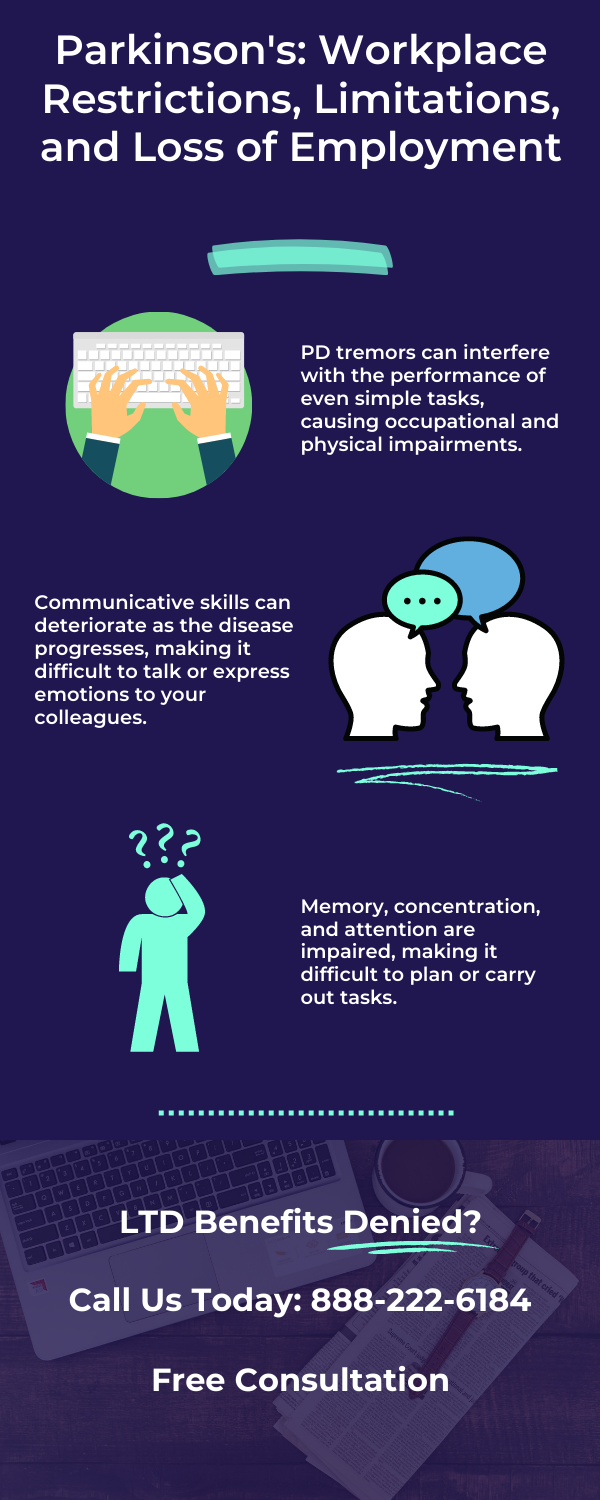
Workplace Restrictions Caused by Parkinson’s Disease
When considering your employment and Parkinson’s disease diagnosis, consider how stable your condition is, how safe you are to do your job and what the demands are physically and mentally.
Many individuals suffering from Parkinson’s disease may experience fatigue and lack of strength, or muscle cramps/fatigue and tremors.
Parkinson’s Disease and Workplace Discrimination
It is unlawful to discriminate against someone in the area of employment based on their physical disability: Ontario’s Human Rights Code and the Canadian Human Rights Act.
If you are suffering from Parkinson’s disease, you might face discrimination in a variety of ways:
- You experience employment termination because you have Parkinson’s disease.
- You are denied accommodation because of your Parkinson’s disease.
- After returning from a disability leave, your employer places you in a lower, part-time position at a lower rate of pay.
- Someone makes unwelcome remarks or jokes about your disability.
- Someone offends or humiliates you physically or verbally threatens or intimidates you because of your disability.
- Retaliating against you for filing a human rights complaint.
Ertl Lawyers are experts in Employment and Disability Law. If you have been discriminated against, our disability and employment lawyers in Toronto can help, including:
- Having your employer comply with their duty to accommodate you.
- Having your employer stop all forms of discriminatory conduct.
- Representing you in wrongful dismissal in Ontario, constructive dismissal, and human rights matters.
- Ensuring that your employer complies with its statutory obligations, including its obligations under the Employment Standards Act.
- Negotiation severance packages (including continuation of benefits).

Parkinson’s Disease & Insurance Companies
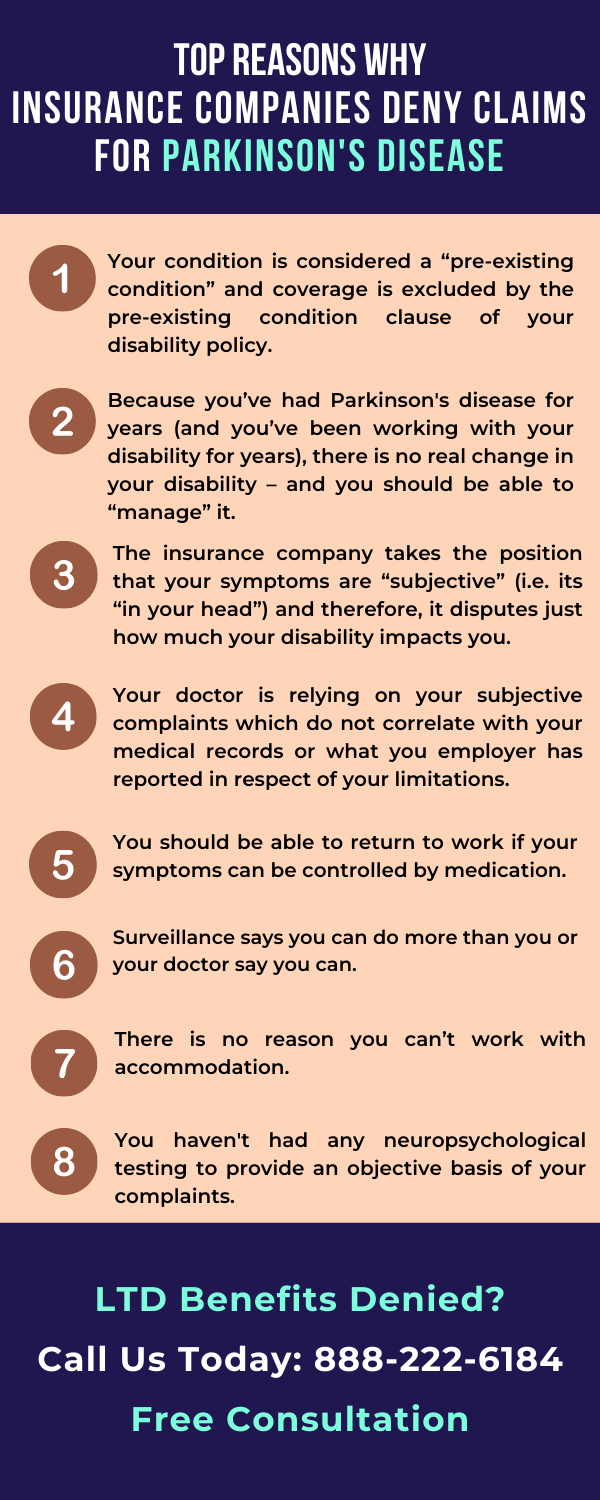
Apply for Long-Term Disability Benefits for Parkinson’s Disease?
Review Your Policy Carefully
Your entitlement to long-term disability benefits for Parkinson’s disease depends on the specific wording of your disability policy.
As noted, some policies outright exclude Parkinson’s disease coverage or else consider it a “mental disorder” (and seek to limit the amount of benefits).
It is important that you understand how the insurance company defines things like “totally disabled,” “occupation,” “mental disorder, “self-reported condition” – and whether any exclusions apply (particularly for pre-existing conditions).
Bottom line: You need to know what your policy says before you apply for benefits.
Gather Medical Evidence
To be entitled to long-term disability benefits for Parkinson’s disease, every insurer requires you to provide medical evidence documenting your diagnosis and that your illness or injury causes restrictions or lack of ability, such that you are prevented from performing the essential duties of your occupation.
It is recommended that you get treated by a medical professional who will diagnose your condition using established criteria.It is also recommended that you provide to the insurer results of any Functional Capacity Evaluation or cognitive testing that objectively documents your physical and (if applicable) mental limitations.
Gather Evidence of Workplace Limitations
Because your entitlement to long-term disability benefits for Parkinson’s disease depends on the strength of your evidence, you should get a copy of your employee file from work. It may show that your Parkinson’s disease has negatively impacted your work performance. Your work performance may have been affected by your pain, fatigue, cognitive impairment, or other symptoms.
Create a List of the Physical Duties of Your Job
You should get a copy of your job description. Based on that job description, you should write out a detailed list of the physical (and mental) duties associated with your job description – and explain how your Parkinson’s disease limits or prevents you from performing you own occupation.
Follow Your Doctor’s Treatment Plan
Your entitlement to long-term disability benefits also requires you to be receiving regular, ongoing care and treatment for your Parkinson’s disease. In other words, don’t skip appointments, and always follow your doctor’s treatment plans.
Keep a Diary
On your end, it is important to keep a diary. A diary is a written record that helps you keep track of when you have symptoms, how bad they are, and whether your treatment is helping.
What Other Benefits Might I Be Entitled to for Parkinson’s Disease?
Other than short-term and long-term disability benefits through a group or individual insurance plan, people suffering from Parkinson’s disease might be entitled to one or more of the following benefits:
- Employment Insurance (EI) Sickness Benefits;
- Ontario Disability Support Plan (ODSP);
- Disability Tax Credit (DTC);
- Disability Creditor Insurance (under your mortgage or credit cards);
- Trillium (extended health benefits);
- Canada Pension Plan Disability (CPP-D); and
- Disability Pension (employer).
Organizations / Associations / Colleges
- National Parkinson’s Foundation
- American Parkinson Disease Association
- Michael J. Fox Foundation
- Parkinson Canada
Disclaimer: The content on this web site is provided for general information purposes only and does not constitute legal, medical, or other professional advice or an opinion of any kind. Users of this web site are advised to seek specific legal advice by contacting members of Ertl Lawyers (or their own legal counsel) regarding any specific legal issues. Ertl Lawyers does not warrant or guarantee the quality, accuracy or completeness of any information on this web site
Sources:
Long-Term Disability Benefits Denied?
Ertl Lawyers provides expert representation in long-term disability matters.
The vast majority of disability matters are resolved through negotiation and mediation – and that’s because insurance companies know that we are passionate about our clients’ rights.
How we can help you:
• free disability policy analysis
• free case assessment
• applying for disability benefits
• appealing a denial or termination of your benefits
• disputing a denial through a legal claim
• handling all communications with your employer
• protecting your employment
• prosecuting human rights claims
Fair, Flexible Rates – Including Contingency Fees
(Don’t Pay Unless You Win)
Our Help Can Make All The Difference.
Related Blogs
Understanding the Duty to Accommodate Laws in Canada
Laws regarding duty to accommodate aim to level the playing field in situations that inherently discriminate against individuals based on factors they cannot control, and which are protected in various Canadian statutes. These protected (or prohibited) factors usually...
What Qualifies for Long-Term Disability in Canada?
Long-term disability (LTD) benefits are paid out by insurance companies according to the policy purchased by a worker, their union/association or their employer, and each has specific rules regarding how you qualify for long-term disability benefits. The general rule...
How to Apply for Long-Term Disability
One of the many things the COVID-19 pandemic made crystal clear, if it wasn't already, is that our health is often out of our control. Be it mental or physical, illnesses and injuries are mostly unexpected and can completely disrupt our lives, especially conditions...




